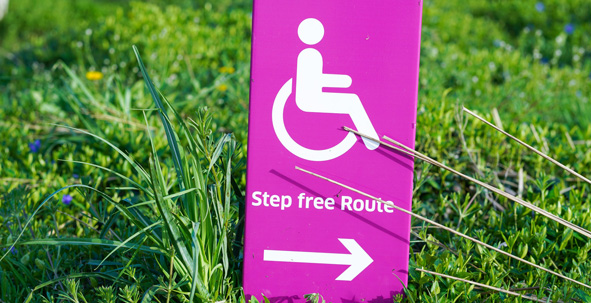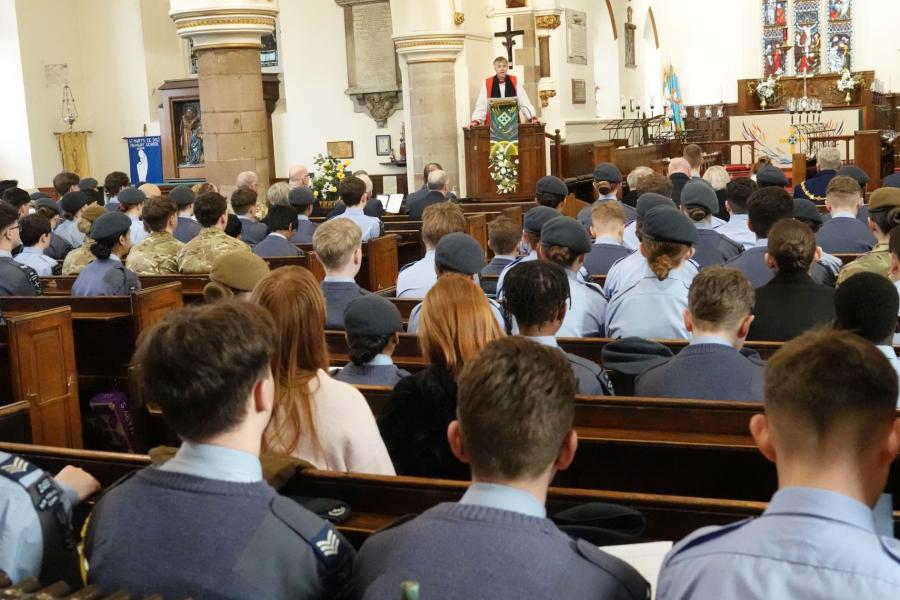 Having a disability should not be a bar to worship or to inclusion in the church community. In our diocese we aim to be open and accessible to all. We are committed to working towards an environment that will promote and ensure the full and equal enjoyment of all human rights and freedoms by all people with disabilities, and to promote respect for their inherent dignity.
Having a disability should not be a bar to worship or to inclusion in the church community. In our diocese we aim to be open and accessible to all. We are committed to working towards an environment that will promote and ensure the full and equal enjoyment of all human rights and freedoms by all people with disabilities, and to promote respect for their inherent dignity.
If anyone experiences any difficulty in access to services within a parish or a diocesan event, they should contact the churchwardens or vicar, or a diocesan person responsible for the event. If the difficulty cannot be resolved please contact Jo Hyrons, the Diocesan Disability Advisor, jhyrons@cofe-worcester.org.uk
Disability Sunday
Disability Awareness Sunday is on 18 September and is a chance to highlight that, as children of God, we are all fearfully and wonderfully made and reflect God’s image however we are embodied.
You could use this date (or one more convenient for your church) to launch a new initiative to make your church more open and welcoming of the belonging and participation of disabled people. Disabled people bring fresh perspectives on God and the human experience without which your church is impoverished and incomplete. A good place to start might be by listening to the experience of any disabled people in your church and letting them tell their own story.
Through the Roof provide resources for Disability Awareness Sunday which you can find on their website.
You can also find practical resources to make churches accessible to all on the Diocese of Worcester website Making churches accessible to all - Diocese of Worcester (cofe-worcester.org.uk)
You may also like to look at the Facebook page: Disability & Jesus - a page of accessible weekly worship maintained by clergy and lay people with disabilities.
We hope you are able to raise awareness and help break down barriers faced by disabled people in Christian life.
General Synod commitment
In July, the Church of England’s General Synod committed to working towards the removal of barriers preventing disabled people from engaging with the Church. Members unanimously backed a motion which also called for better data collection, more inclusive language during services, and more disabled people working within the Church. The full motion, as passed, is:
‘That this Synod, affirming disabled people to be fearfully and wonderfully made in the image and likeness of God, and mindful of the progress already made in removing some of the barriers facing disabled people, both clergy and lay, commit to working towards the removal of all remaining barriers to full participation for disabled people in the life and ministry of the church, and, in initiating that process:
(a) request the Faith and Order Commission / the Liturgical Commission to consider how our liturgies might be made more inclusive to disabled people (e.g. by removing rubrics such as “all stand”);
(b) call upon the Research and Statistics team to interrogate existing data and gather new data, which quantifies the numbers of disabled people among clergy, whilst also planning to extend to include lay ministers and NCI/diocesan staff in the future, so that Synod can monitor the representation of disabled people employed by the church and encourage accountability for progress;
(c) request that Archbishops’ Council introduce legislation to amend the Ecclesiastical Jurisdiction and Care of Churches Measure 2018 to require every DAC to include at least one suitably experienced disabled person in its membership or co-opted if not appointed as a member; and
(d) acknowledging the General Synod motion passed in July 2007 (that every Diocese should appoint a lead person on disability issues), request that the ongoing review of Dioceses, recognising that resources for additional officers in every diocese are limited, encourage dioceses to cluster together to employ a full time Disability Adviser across a manageable group of dioceses.’

